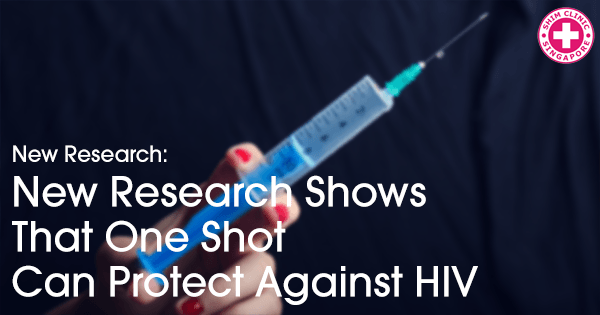There is no cure for HIV. Currently, sexually active individuals have only two options: prevention or treatment. HIV can be controlled once you have it, so that you can continue to live a relatively normal life as long as you take your medications every day. However, protection and prevention is still the best way to go.
Researchers at the US National Institute of Allergy and Infectious Diseases believe that they are one step closer to discovering a lifetime vaccine for HIV. It’s a new antibody shot, one that has shown great promise in animal trials. Discover more about how HIV attacks the body and how this new shot prevents it from taking hold.
How Does HIV Work?
You’ve heard of HIV. It’s a human immunodeficiency virus, which means that it destroys the body’s fighter cells, the ones that target infection and disease. Without those fighter cells, the human body is left vulnerable to all kinds of sickness, disease, and infection; and with no mechanism in place to combat those invading entities, the body can eventually die.
How Does the Vaccine Work?
For this particular research effort, German and American scientists took ready-made antibodies from HIV-infected individuals. They processed those antibodies in the lab, the injected them into a group of monkeys called macaques.
Next, the researchers exposed a group of healthy macaque monkeys to HIV as well as to SIV (simian immunodeficiency virus). The monkeys contracted the virus within 2-6 exposures.
The scientists then dosed a second group of healthy monkeys with the processed antibodies. Once the antibodies were in place, the scientists introduced HIV and SIV exposure once a week. To the researchers’ amazement, a particular strain of treated antibodies protected the monkeys for up to 23 weeks.
Is the Shot Available Now?
The study is welcome news for sexually active individuals. Instead of more clumsy measures of control and protection, they may be able to have one shot every six months to protect against HIV. Of course, the shot isn’t ready yet. Many more studies need to be done before it becomes approved for human use on a regular basis.
Are There Any Downsides to the Shot?
Even when the shot is finally ready for humans to use, it’s not a catch-all for every kind of STD. People still need to use protection for other sexually transmitted diseases. Plus, the shot’s efficacy declines over time. By the end of the 23-week period, the amount of antibodies in the monkeys’ bloodstream had declined, and the risk of contracting HIV was much higher than it had been at the beginning of the experiment.
For now, take reasonable measures to protect yourself from infection. If you think you have been exposed to HIV, visit Shim Clinic immediately for HIV testing and HIV PEP. The PEP treatment, which stands for Post-Exposure Prophylaxis, can keep you from becoming infected with HIV as long as you start it within 72 hours of the exposure event. It won’t help if you’re already infected, so go immediately to Shim Clinic, even if you’re not sure how high your risk level is. Keep yourself healthy through protection, prevention, and regular STD testing!

